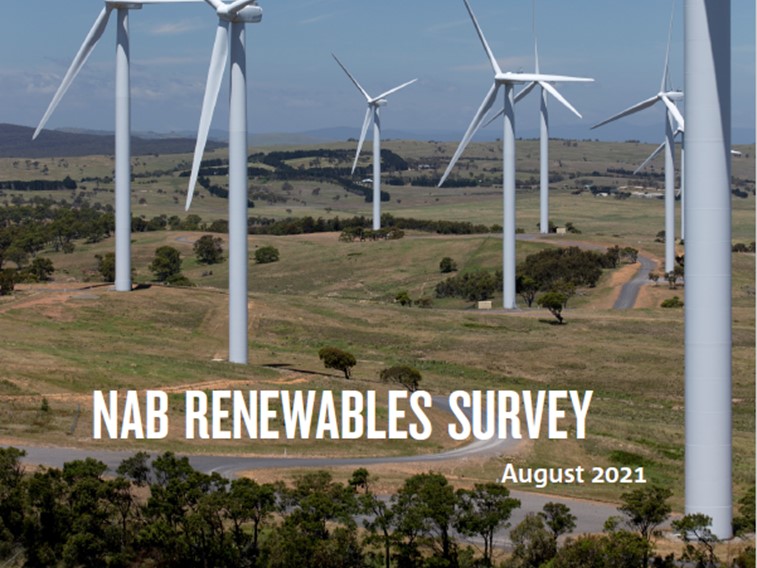Coming in for landing in a heavy cross wind


Insight
NAB’s second Renewables Survey shows the transition to renewable energy by Australian businesses remains slow but there's a growing recognition of the social and reputational benefits.

There has been a renewed focus on climate change and the shift to renewable energy. While NAB’s second Renewables Survey shows that the transition to renewable energy by Australian businesses remains slow there is a growing recognition of the social and reputational benefits.
The focus on reducing global emissions has intensified as many countries work towards net zero emissions . While Australia is heading down this path, the latest NAB Renewables Survey highlights that the transition amongst the non-farm business sector remains relatively slow.
Encouragingly, the survey shows an increase in renewable energy usage, with close to 50% of respondents confirming they now use renewable energy for some part of their energy needs (up from 33% in the previous survey). However, as a proportion of overall energy usage the take-up remains low. Only 16% of respondents reported that their renewable energy usage makes up greater than 25% of overall energy use.
The number of firms reporting they have a renewable energy policy remains very low, at 22%. While the sector breakdown highlights some differences, overall the survey continues to show a lack of urgency amongst firms to set their own policies with 40% of firms reporting that switching to renewable energy was not a high priority. A lack of understanding of the cost reductions that are being made in the renewables sector may also be an issue with many firms citing costs as being a key barrier to renewable energy usage .
One of the biggest shifts in the current survey was the increasing recognition of the social and reputational benefits of working towards net zero emissions as well as recognising customer demand and expectations that firms make this shift. The renewed focus on climate change and the push from society for action is likely doing some of the heavy lifting in the absence of firms having clear policy targets.
As for net-zero carbon transition plans and carbon trading activity, almost a third of participants either have in place, are developing or plan to develop net-zero carbon emissions transition plans. However carbon trading has some way to go, with less than 7% buying, and less than 5% selling, carbon offsets.
© National Australia Bank Limited. ABN 12 004 044 937 AFSL and Australian Credit Licence 230686.